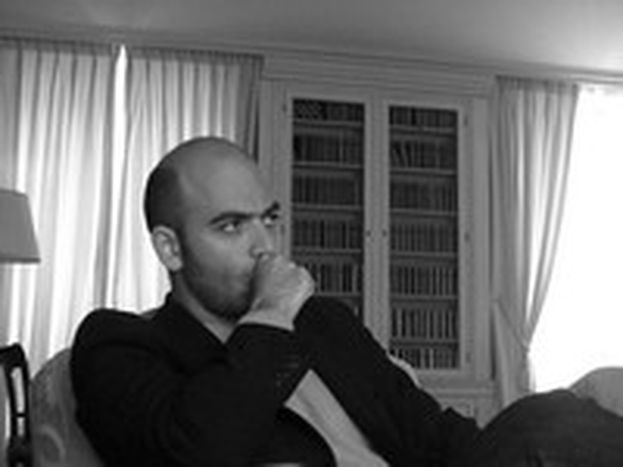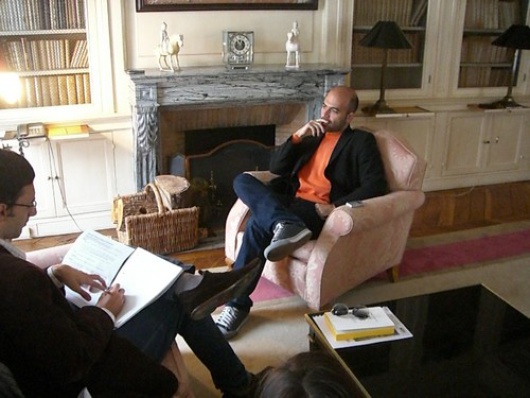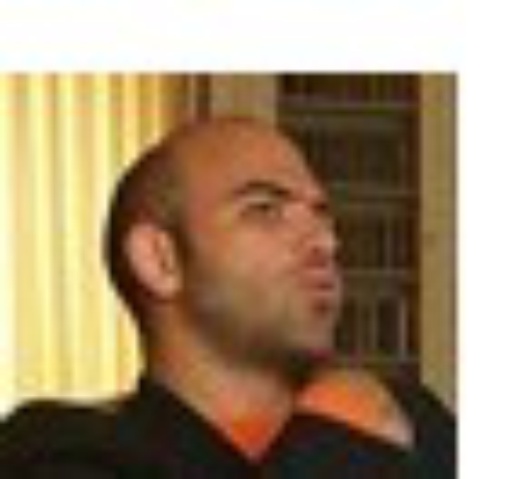
Roberto Saviano on the Italian Camorra
Published on
Translation by:
 catherine e. moir
catherine e. moir
First part of an exclusive interview with the author of 'Gomorra', investigating the Neapolitan mafia. From Scottish tourism to Spanish drug trade, the Italian empire stretches throughout Europe and the world
'Sentenced to death': that was the title of an article by Italian publisher L'Espresso on 16 August 2007. After denouncing entire mafia clans, identifying them by their full names in his book Gomorra (2006), Roberto Saviano won’t easily be forgotten ('nun s’o scordano, in Neapolitan dialect). Yet the 28 year-old, from Casali di Principe, a stronghold of the Camorra (or 'System O' as the Neapolitan mafia prefers to be called), has been made untouchable, for the moment, by the immense interest of the press. Not just the Italian press, either: media giant Mondadori has euro signs ringing in its eyes having sold 700, 000 copies of the book. There is interest in Germany too, where the book has been the literary phenomenon of the season, selling 100, 000 copies in one week. Significantly, Germany is still in a state of shock after the reprisals of the ‘Ndrangheta (southern Italian and Calabrian mafia) on 15 August in the centre of Duisburg, resulting in 6 deaths.
Saviano seems tiny and affable as he sits opposite me, his gaze even narrower because of a slight squint. We are in a Paris apartment provided by Gallimard, the French publisher currently preparing for the book’s release in France on 18 October. Saviano will soon be returning to Italy, where he is working on a film script inspired by Gomorra. Then he will head to the US to continue promoting the book, the rights having already been sold in 29 countries. He will be accompanied at all times by a bodyguard, as he is still the subject of death threats by mafia clans.
What would you say to those people in Europe who view the Camorra as a distant, essentially Italian, phenomenon?
There is truly nothing more international than criminal organisations, especially the Neapolitan and Calabrian mafia. There is a simple reason for this – they are part of the economic and financial avant-garde. I am sorry that people only seem to realise this when people are murdered, like in the events in Duisburg, which opened Germany’s eyes, and also Europe’s. After Duisburg, organised crime can be defined as a European problem - not just an Italian one.
The Italian mafia’s criminal networks are potentially without limit. In Scotland the 'La Torre' clan invests in Aberdeen (especially in the tourism sector). All the big Neapolitan clans invest in Dortmund, Leipzig and eastern Germany. Francesco Schiavone aka 'Cicciarello' (a blueish fish found along the Ligurian coast with France), was arrested in Poland on 18 March 2004, and had also been investing money in Romania. Vincenzo Mazzarella was found outside the Eurodisney park in Paris on 19 December later the same year, although he had been negotiating diamond deals with groups of Africans. In Nice, they invest particularly in property.
 Property, diamonds, drugs: what are the sectors in which the Camorra is most active internationally?
Property, diamonds, drugs: what are the sectors in which the Camorra is most active internationally?
Investment in the tourism industry remains fundamental. Restaurant chains are still a safe way of getting into a country. But, for example, the ‘Ndrangheta has bought steel works in Russia. In France the Camorra concentrates on clothes shops and invests in transport and in fuel distribution. Hence the famous 'white petrol pumps' which have nothing to do with Agip or Total, but they are the symbol of the Camorra. There are currently investigations going on into this matter.
You should know that the Camorra or the ‘Ndrangheta cannot invest in sectors where there is high risk. Talking about all of this has been really difficult. I am not exactly sure where my will to succeed has brought me, but the miraculous thing about what I have done is to get this information across to the greatest number of people, thanks to the vehicle of literature. It might sound ridiculous but the danger is no longer in revealing some piece of data or information, but rather in the fact that this tale, this information can spread from the limited few to reach the whole world. Take murdered Russian journalist Anna Politkovskaya – she really became dangerous in making the situation in Chechnya an international problem, making what was happening there the cause of every human being.
When American novelist Philip Roth was asked who he considered to be the greatest Italian writer of all time, from Dante right through to modern literature, he replied 'Primo Levi. After If this is a man (1991), nobody could say that there had never been an Auschwitz.' As far as my own revelations go, I don’t think the mafia was angry because I had collected all this information, but because the information has been made public, which is something completely different. It wouldn’t have been a problem if it had been confined to my region, or even the south of Italy, but the fact that these revelations are beginning to circulate quickly and on a large scale, that is the most dangerous thing that can happen to a powerful person or organisation, no matter who or what it is.
Here, the criminals’ power is always based on the diffuse nature of information, as everybody knows, and at the same time it is based on the impossibility of proving or even talking about something. When you break this strange equilibrium, you create a real danger. And the fact that that can happen in Europe demonstrates that it is now possible to stand up to these criminal powers. I say 'powers' because now the Italian mafia is forming links with the Albanian and Nigerian mafia. Testament to this is that they even go so far as to intermarry…
Can you give some examples?
Augusto La Torre, a member of the Camorra, is married to an Albanian woman. To emphasise another very important event: the first foreign pentito (a member of the mafia who makes a confession and denounces his accomplices) in Italy, a Tunisian, admitted to being involved with the feared Casalesi clan, part of the Camorra. The first town that the Italian mafia gave over to be completely governed by a foreign clan was Castel Volturno, which was given to the Rapaces, clans from Lagos and Benin City in Nigeria. So from now on they can control trafficking of cocaine and prostitutes before sending them across the whole of Europe.
Are we witnessing the birth of a new kind of feudalism then?
In a way, yes. The remarkable economic development of these networks is really competing with territorial structures that remain often slow and inefficient. Clans are investing in every part of the world, and yet they forbid women to dye their hair, because it’s considered erotic. They view the web as a new platform for investment, but they prohibit their families from consuming drugs. This is strictly forbidden because none of them must have any vice: 'no drugs, no homosexuals.' This sort of motto is reminiscent of a time we thought was past. Yet this same power realised ten years before the French Enterprise Movement (Medef) or Confindustria (the Italian equivalent), that it was necessary to invest in China. It is precisely this duality of tradition and modernity that makes them invincible, however the power they possess may also prove to be destructive. This is why no godfather ever survives, or escapes prison…
Don’t miss the second part of the interview with Roberto Saviano on Tuesday 16 October – featuring revelations about European countries most involved with the Camorra, the comparison with the French 'banlieues' or suburbs, criticism of Beppe Grillo, plus a reply to Neapolitan writer
Translated from Roberto Saviano: «La Camorra? Un problema europeo»



